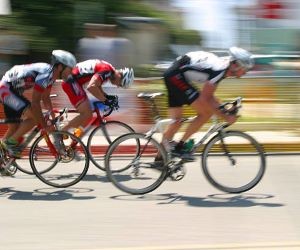WHAT ARE THE BEST RECOVERY SLEEP HABITS FOR CYCLISTS?
Sleep is the unsung hero of cycling performance. While training and nutrition receive most of the attention, quality sleep underpins recovery, adaptation, and long-term performance gains. Cyclists who optimize sleep improve muscle repair, cognitive function, hormone regulation, and immune resilience. Poor sleep, on the other hand, increases fatigue, slows reaction times, and elevates injury risk. This guide explores evidence-based recovery sleep habits for cyclists, practical routines to maximize rest, and strategies to align sleep with intense training schedules.

Understanding the role of sleep in recovery
Sleep is the primary period when the body repairs and adapts to training stress. During deep sleep, muscles recover, glycogen stores replenish, and growth hormone levels peak. For cyclists, this means that performance improvements are directly linked to sleep quality, not just hours in the saddle.
Physiological benefits of sleep
Quality sleep reduces systemic inflammation, accelerates muscle repair, and stabilizes heart rate variability. Cyclists who prioritize sleep experience faster recovery from high-intensity intervals, longer endurance capacity, and enhanced sprint performance. Even minor sleep deficits can reduce VO2 max and increase perceived exertion.
Growth hormone release peaks during deep sleep, promoting tissue repair.
Cortisol levels drop, reducing catabolic stress on muscles.
Immune system function strengthens, decreasing illness risk.
Cognitive and performance benefits
Sleep enhances focus, decision-making, and reaction time. For cyclists navigating technical descents or peloton dynamics, cognitive clarity is critical. Studies show that even one night of restricted sleep can impair coordination, attention, and tactical judgment, underscoring the importance of consistent sleep habits.
Optimizing sleep duration and timing
Getting enough sleep is only part of the equation. Timing, consistency, and alignment with training loads determine how restorative sleep truly is. Cyclists should consider both nightly sleep and strategic naps to maximize recovery.
Recommended sleep duration
Most adult athletes benefit from 7–9 hours of sleep per night, with endurance athletes often needing closer to 8–9 hours. Extended training periods, high-intensity rides, or multi-day tours increase these requirements. Monitoring fatigue, mood, and performance helps fine-tune individual sleep needs.
Base training: 7–8 hours per night.
High-volume or stage-racing periods: 8–9 hours per night.
Short naps: 20–30 minutes for quick recovery.
Consistency and circadian rhythm
Maintaining consistent bed and wake times reinforces the circadian rhythm, improving sleep efficiency. Cyclists traveling across time zones should gradually shift sleep schedules before events. Exposure to natural light in the morning helps anchor internal clocks, while avoiding late-night blue-light exposure supports melatonin release.
Strategic napping
Short naps can offset accumulated fatigue, particularly during heavy training blocks or multi-day tours. Limit naps to 20–30 minutes to avoid sleep inertia, which can leave cyclists groggy and counterproductive. Early afternoon is ideal, allowing enough time before evening sleep.
Creating an ideal sleep environment
The environment in which a cyclist sleeps is as important as duration. Factors like light, temperature, noise, and bedding all influence sleep quality and restorative effects.
Optimal bedroom conditions
Keep the bedroom cool, dark, and quiet. Ideal temperatures range between 16–20°C (60–68°F). Blackout curtains or sleep masks block ambient light, while earplugs or white noise machines mitigate disruptive sounds. Proper bedding supports spinal alignment and prevents discomfort during long sleep periods.
Cool, dark, and quiet environment for deep sleep.
Supportive mattress and pillows to maintain posture.
Remove electronic distractions to reduce cognitive stimulation.
Pre-sleep routines
Wind-down routines enhance sleep onset and quality. Activities like gentle stretching, foam rolling, meditation, or reading help relax both muscles and mind. Avoid caffeine or heavy meals close to bedtime, as these disrupt deep sleep and increase nocturnal awakenings.
Post-training recovery integration
Evening rides or intense sessions can elevate heart rate and body temperature, delaying sleep. Active recovery, hydration, and light nutrition post-training help normalize physiology. Techniques like contrast showers or compression garments may further promote relaxation and circulation.








